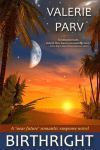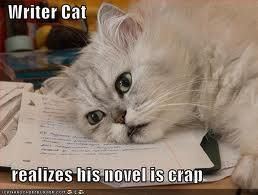First Monday Mentoring – 5 editing tips to strengthen your writing
It’s that time again, the first Monday of the month when I answer your writing questions here. Suggestions from other writers are welcome too, so we can share experiences and solutions. This week I’m on tour for Writing Australia, visiting the writers’ centres in Canberra, Melbourne and Adelaide with my Power Editing Masterclass, making this a good time to consider how editing can strengthen your work.
With so many writers publishing their own work online, we need editors more than ever. The most common complaint I hear about indie published books is the number of mistakes readers spot, often in the first few paragraphs. This not only turns readers off that book, but very likely anything else the writer has out there.
Every writer, however well established, is too close to the work to be objective about it. We can’t help seeing what we expect to see, reading things like motivation into the writing when it’s still in our heads. Everything your reader needs to understand your characters and their story must be written in to the manuscript. Which brings me to the first, most crucial editing tip:
1. Step away from the book.
Put the work aside for as long as possible, days or weeks if you can manage it, to restore your objectivity. Missing motivation, repetition, inconsistensies will all jump out at you when you come back to your book with a fresh eye.
2. Say what you mean
In workshops, I’ve had writers bring along a preamble they want to share before reading their work. Your readers won’t have this luxury. Whatever they need to know must be in the book. An editor can soon tell you what’s missing.
3. Find yourself an editor
If you’re accepted by an established publisher, they will appoint an editor who’ll look at content and structure. Your work will also be copy and line edited to suit the publisher’s style. If you indie publish or are polishing work to submit, you can hire a qualified editor. Start by giving them a sample and obtaining a quote to do more, to be sure you’re on the same wavelength. Find freelance editors via the Australian Publishers’ Association website or the Institute of Professional Editors.
4. Know what to change…and what not to
Theodore Sturgeon called it “matter vs manner”. Matter is your message, what you want to say with the work. No one should try to change your message, be it ‘love conquers all’ or ‘life’s a bitch and then you die’ or whatever. A good editor will look at “manner” (how you say it) to be sure the reader gets your message as clearly as possible. As an editor told me, “If I’ve missed something, millions of readers will, too.” If your message isn’t clear to your editor, make the changes, no arguments.
5. Read like a reader
This is hard to do and requires all the previous steps. Will the reader understand why your characters act as they do? Will they spot “who dun it?” chapters before they should? An editor can tell you whether you’ve given the reader enough information to understand your story.
Don’t be like the hall of learning which recently produced several thousand student book bags emblazoned with the name, “Missouri Univeristy.”
Do you have questions about editing? Or experiences you’d like to share? Post your comment or question here.
Valerie

on Twitter @ValerieParv and Facebook
Read some reviews already up at http://www.valerieparv.com/birthright.html


Valerie Parv's Blog
- Valerie Parv's profile
- 30 followers




